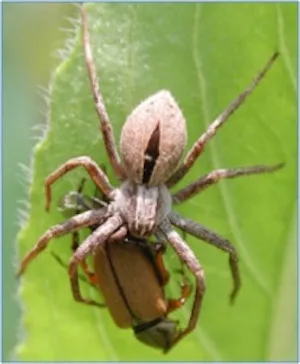
The genetics of chutes and ladders: a community genetics approach to tritrophic interactions
Imagine a world where your behavior, your susceptibility to disease and predation, and the survival of your children are genetically determined by the genes of another species. That world exists for insects living on plants according the latest paper by PDF Dr. Diego Carmona (Johnson Lab). Diego just published “The genetics of chutes and ladders: a community genetics approach to tritrophic interactions” in Oikos. Using three large field experiments at KSR, Diego showed that genetic variation in traits of the plant Common Evening Primrose directly determines the number of eggs a female weevil lays on plants. Genetic differences between plants subsequently affect the survival, mass and even the sex ratio of her progeny. Diego also examined whether the weevil’s predators influence the performance of the weevils, and surprisingly there was no effect of predators. Previous research in this system shows that the plant’s genes also determine the abundance and diversity of the weevil’s predators. Thus, genetic differences among plants affect multiple aspects of the behavior and performance of herbivores, and the diversity and abundance of their predators, whereas the top-down effects of predators are small.
Congrats, Diego!
